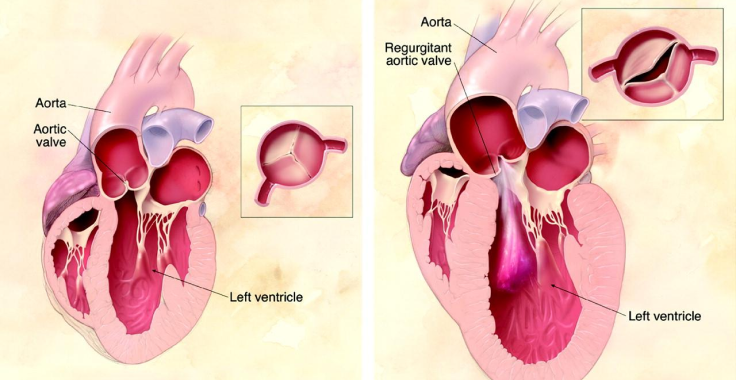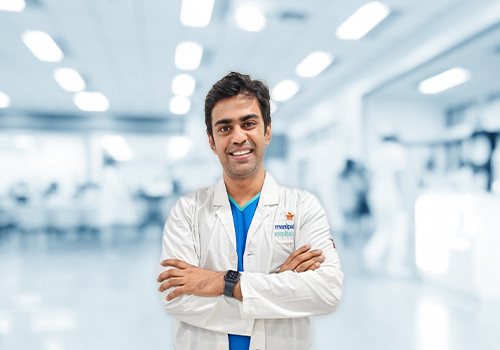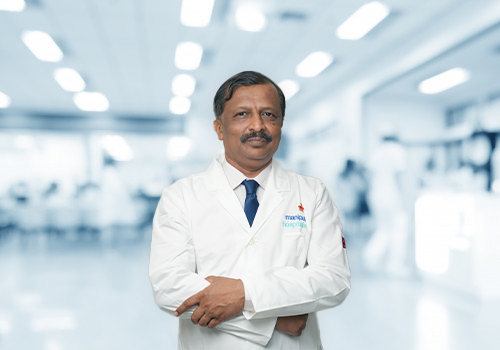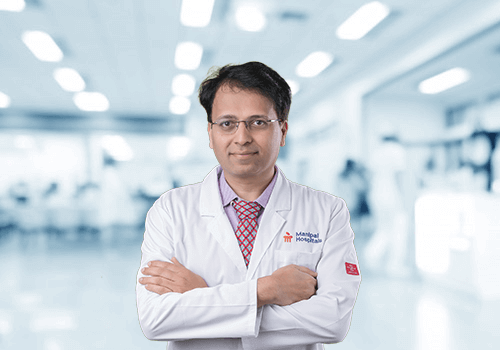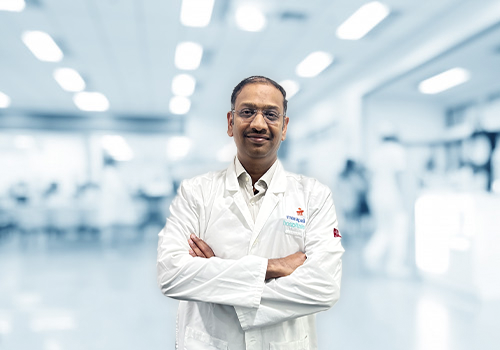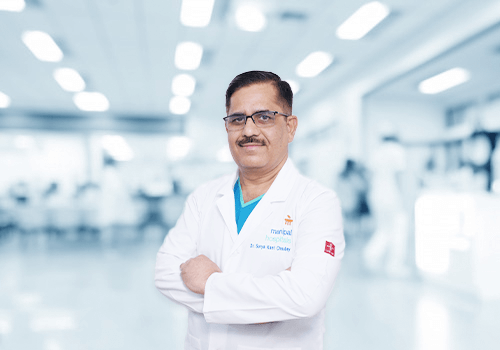What are the types of Aortic Valve Diseases?
-
Aortic Valve Regurgitation: Aortic valve regurgitation could be caused by a leaky or unhealthy valve. It can be caused by any issue that harms the aortic valve, or congenital heart abnormality (a birth defect of the aortic valve).
-
Stenosis of the aortic valve: In simple terms, stenosis of the aortic valve is the narrowing of the valve or obstruction in the valve that affects its proper opening. Aortic stenosis may either be congenital or due to rheumatic heart disease.
-
Other congenital valve problems: Some new-borns may have aortic valves that lack a valve opening, have insufficient tissue flaps (cusps), or are of incorrect size or form.
When is atrial valve replacement advised?
Aortic valve repair and aortic valve replacement procedure is advised to treat symptomatic aortic valve diseases. For asymptomatic or mild aortic valve diseases, frequent routine examinations may be advised for monitoring the condition. However, the majority of aortic valve issues are mechanical issues and require surgery to alleviate symptoms and lower the risk of complications like heart failure, heart attacks, strokes, or sudden cardiac arrest-related mortality.
Your cardiologist will thoroughly assess your condition and decide if you require an aortic valve repair or aortic valve replacement based on the severity (stage) of aortic valve disease, age, general health, and whether surgery is necessary to treat another valve or cardiac ailment.
Generally speaking, surgeons advise valve repair whenever it is feasible because it reduces the risk of infection, preserves the heart valve, and possibly even improves heart function.
What happens before Aortic valve repair and aortic valve replacement?
During your pre-surgical evaluation consultations, your doctor will advise you on certain things to follow before the surgery. This may include stopping certain medications temporarily about 3-5 days before the surgery, or any other instructions as determined by your cardiologist. You will also be asked to not drink or eat anything from the previous night of the surgery.
What happens during Aortic valve repair and aortic valve replacement?
Generally, the procedures are carried out under general anaesthesia.
-
You will remain sedated throughout the procedure, and not feel any pain or discomfort.
-
If your doctor decides to perform a minimally invasive procedure, the procedure might be carried out with local anaesthesia as well.
-
You will also be fitted with an intravenous (IV) drip in your forearm for easy fluids and medications administration.
-
You might also be attached to a heart-lung bypass machine to keep the blood flowing through your body during the heart valve operation.
Based on your condition, your doctor will decide whether the aortic valve repair or replacement should be done by open-heart surgery or minimally invasive cardiac procedures such as balloon valvuloplasty or transcatheter aortic valve replacement (TAVR). Compared to standard open-heart surgery, minimally invasive heart surgery may result in a shorter hospital stay, a speedier recovery, and less pain.
-
Open heart surgery: Open heart surgery, as the name suggests, involves cutting open the chest to access the heart. Once gained access to the heart, the surgeon continues with valve repair or replacement. The chest is closed and the sutures are closed to facilitate healing. An open heart is a major and complex surgery and requires close monitoring and immediate post-operative support.
-
Minimally invasive cardiac procedures
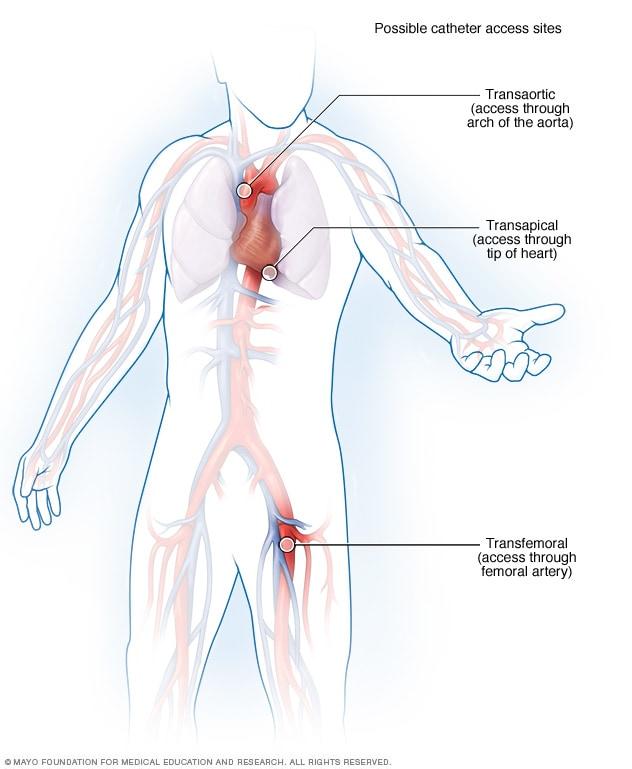
If your doctor decides to perform minimally invasive cardiac procedures in place of open heart surgery, they will make a small incision in your groin area to insert a sheath—a hollow plastic tube—through the vein. Through this sheath, a catheter fitted with a balloon tip is inserted and guided to the aortic valve using X-ray and echocardiographic images of your heart's architecture and blood arteries to direct the catheter to your heart. A dye is injected through the catheter to locate the constricted heart valve.
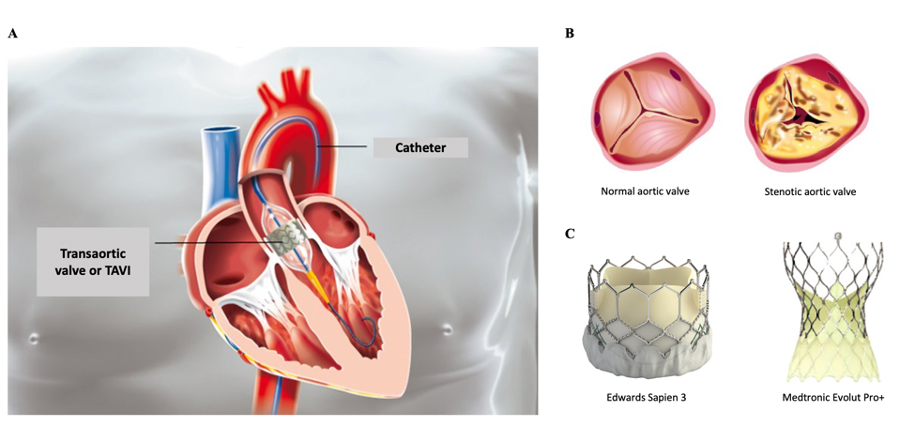
The balloon is positioned at the narrowest part of the heart valve and inflated and deflated several times until the valve opening expands. Once the valve opens, the catheter and the balloon are withdrawn, and the incision is closed by sutures.
What happens after Aortic valve repair and aortic valve replacement?
-
After the procedure, you will be shifted to the intensive care unit (ICU) for a day or more. While in the ICU, you will receive medicines and fluids through intravenous (IV) lines and be fitted with a urine collection bag.
-
Once your condition stabilizes, you will be transferred to a standard hospital room for a few days after your stay in the ICU. Depending on your condition and the surgery, the length of time you remain in the ICU and hospital can change. Your medical professionals will keep an eye out for infections at the sites of your incisions during your hospital stay.
-
During your hospital stay, your vitals will be checked regularly, and you will be encouraged to walk frequently to gradually raise your activity level and do breathing exercises as you recover.
-
The length of your recovery depends on your procedure, your pre-procedure condition, and any complications. You will be discharged once you have recovered satisfactorily. Your doctor might advise you to refrain from driving vehicle, indulging in strenuous activities, or lifting heavy objects for few weeks following the surgery. They may also refer you for chest physiotherapy or cardiac rehabilitation.
Risks and Complications of Aortic Valve Repair or Aortic Valve Replacement procedures?
-
There are risks associated with every surgery. The risks of aortic valve replacement and repair depend on your health while you underwent the surgery, the type of surgery, and the surgeons' and other medical professionals' training.
-
The procedures may also involve procedure-related risks such as bleeding, formation of blood clots, infection at the site of incision, or infection due to instrumentation, replacement valve issue or failure, arrhythmias in the heart, stroke, or death.
Manipal Hospitals Bangalore have highly experienced cardiology doctors that ensures the aortic repair or replacement procedures are carried out with minimal to nil complications.
Benefits of Aortic valve repair and aortic valve replacement
-
Improvement in circulation and reducing strain on the heart therefore improving the overall heart function.
-
Reduces chest pain, breathlessness, dizziness, and fatigue thereby improving daily function of life
-
Early intervention protects the heart muscle and prevents long-term complications.
-
Post-procedure, most patients experience better stamina, reduced symptoms, and improved heart health.
-
Reduces the need for lifelong medications avoiding the need for long-term blood thinners
Why Choose Manipal Hospitals Bangalore for Aortic Valve Repair & Replacement?
Manipal Hospitals is one of the most sought-after hospitals for advanced cardiac care in Bangalore. The hospital is known for its clinical excellence and the advanced treatment solutions for patients requiring Aortic Valve Repair or Aortic Valve Replacement (AVR). With a strong history of successful cardiac interventions and a team of some of the most experienced cardiovascular specialists, Manipal Hospitals has become a preferred destination for aortic valve procedures in Bangalore.
Here’s what sets us apart:
-
Advanced Cath Labs & Surgical Suites – Manipal Hospitals Bangalore is equipped with the latest imaging systems and cardiac operating theatres that allow for real-time, high-precision diagnostics and surgical execution.
-
Expert Multidisciplinary Cardiac Team - From highly skilled cardiologists and experienced cardiac surgeons to anaesthetists and intensivists, every case is managed by a coordinated team that ensures safety, precision, and continuity of care throughout the treatment journey.
-
Tailored Treatment Strategies - Every patient undergoes in-depth evaluations including echocardiography, CT imaging, and risk assessments to decide the most effective and safest approach - whether it is valve repair or replacement.
-
Faster Healing & Enhanced Comfort – Manipal Hospitals Bangalore offers minimally invasive approaches, ensuring quicker recovery times, reduced hospital stays, and faster return to daily activities—without compromising the outcome.
-
24/7 Cardiac Emergency Readiness – A team of expert cardiologists available round-the-clock to handle urgent cases, including sudden valve failure or heart decompensation, ensuring immediate surgical intervention when time is critical.
With a growing number of successful aortic valve procedures performed across our hospitals, Manipal Hospitals, Bangalore continues to deliver trusted, patient-centred care that saves lives and restores healthy heart function.
Meet Our Specialists


